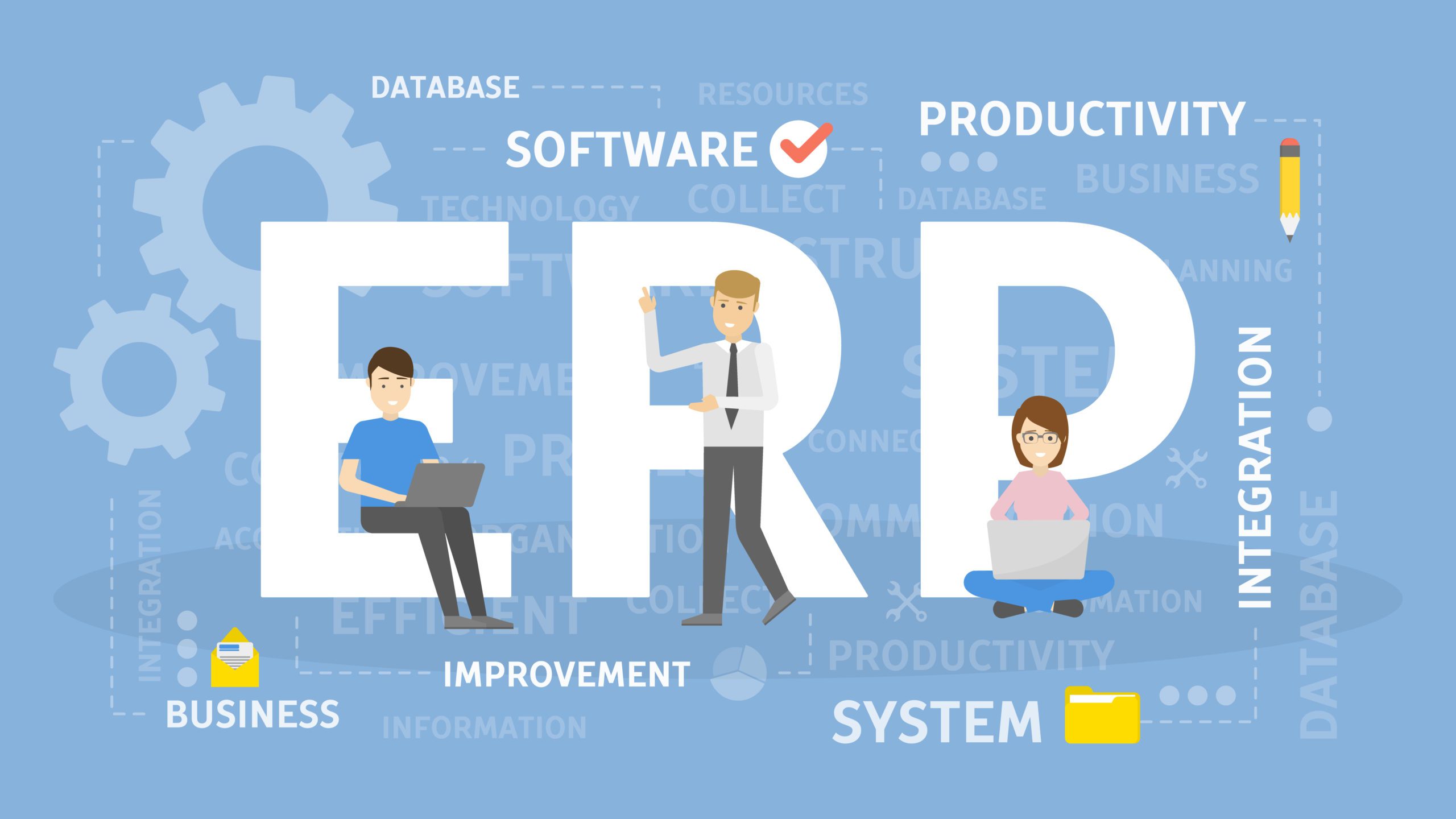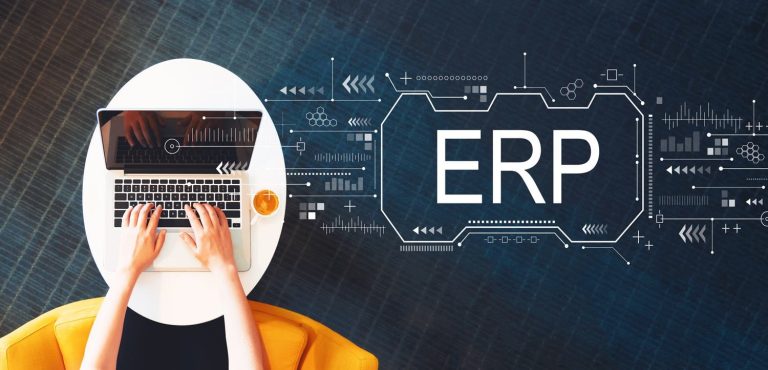Introduction:
ERP stands for “Enterprise Resource Planning”. The core principle of ERP is to consolidate the pieces of software you use throughout your business into one single, unified suite that takes care of everything your business needs from end to end. The practice of ERP software originated in manufacturing but has rapidly become essential to the management of a retail business.

What is ERP (Enterprise Resource Planning)?
ERP includes many pieces of software that are often considered to be separate. By combining them all, the data flows quickly, easily and accurately from one end of the business to the other, and gives both store employees and head office decision makers access to the information and functionality they need to do their jobs with the greatest efficiency and positive impact.
ERP is designed to cover many areas of a business, including:
- Product planning, cost
- Manufacturing or service delivery
- Marketing and sales
- Inventory management
- Shipping and payment
The advantage of ERP is that with centralized data and functionality, your retail store’s software is whole instead of fragmented, able to move information and performs tasks from one section to the other seamlessly.
Why a retail ERP software is so important for your business
1. Customer management: In retail – more than any other business – the customer is the king. Hence, it makes sense to have a dedicated customer management module in a retail ERP software. It helps retailers overcome customer-related challenges, and achieve a truly integrated view of their customers. The module collects data on your customers’ purchase histories, allowing you to identify your most valuable shoppers and offer them with rewards and loyalty management programs. A powerful retail ERP software allows the retailers to have and tailor the member programs that allow promotional and marketing schemes, including points and discounts.
2. Demand forecasting: Retail stores witness heavy customer footfall. The customers are quite demanding these days and at the same time, fickle too. If their demands aren’t fulfilled, they don’t mind switching to your competitor. Hence, it is important to match the demand with supply as well as great service, so that they don’t return disappointed. This makes demand forecasting extremely important. Tracking past trends and forecasting future demands is easier and higher on accuracy with a retail ERP software. It helps you maintain customer satisfaction, maximizing sales and reduced inventory carrying costs through effective demand forecasting.
3. Inventory management: An ERP software helps retailers effectively manage the inventory levels, ensuring the constant flow of units into and out of an existing inventory. It ensures that you have the requisite stock levels required to complete the transactions. A retail ERP software also helps in tracking expiry or shelf life, by sending alerts whenever the inventory is approaching it. This can help Retailers take promotional steps to clear that inventory at priority.
4. Store and warehouse operations: ERP for retail helps streamline operations related to the store and warehouse management function. It supports the creation of any number of stores and warehouses with a link to each other and enables dividing warehouses into zones for handling the materials management. The store operations are central to retail chains since market analysis, merchandising, inventory management, workforce management and much more comes under it. A retail ERP software handles all of it efficiently.
5. Purchase and vendor management: With the help of a good retail ERP software, you can define rules for procurement, supplier setups for same products on the basis of regions, and either auto-generates a requisition or manually generate it. A retail ERP also allows you to create purchase approvals across different levels and manage multiple purchase price lists.
6. Employee management: Every retail outlet is being run and managed by several employees, hence employee management becomes an important component of a well-run retail business. A retail ERP software enables managing them efficiently by keeping track of shift scheduling, time clocks, the number of hours employees are working etc. Besides, the software also assigns sales commissions to employees, allows monitoring who’s working, how long they’re working, how much money they’ve brought in and how many hours they’ve worked in the current pay period.
Top Retail ERP Software Solutions
The best ERP systems designed for retailers include:
- Brightpearl
- Lightspeed Retail POS
Brightpearl
Brightpearl is a leader in retail ERP software designed for omnichannel retailers and wholesalers. Brightpearl describes its software as a Digital Operations Platform that can process thousands of orders every day. Brightpearl ERP provides eCommerce integrations with BigCommerce, Magento, Shopify, Amazon, eBay, and Walmart.
Brightpearl functionality provides:
- Sales order management
- Inventory management
- Inventory & demand planning
- Shipping & fulfillment
- Warehouse management
- Retail accounting
- Purchasing & supplier management
- Workflow automation
- Reporting & business intelligence
- Payments
- CRM
Lightspeed Retail POS
The Lightspeed retail ERP product is cloud-based software for retailers with physical stores and eCommerce businesses. Lightspeed POS is scalable enough to serve growing medium-sized retailers with multi-store locations. Third-party add-on software apps are available for Lightspeed to expand its functionality to fit specific business needs.
Lightspeed Retail ERP software includes:
- Retail point of sale (POS)
- Smart inventory management
- Reporting
- Flexible payment options
- Multi-stores functionality
- eCommerce integration and online store setup
Why is Retail ERP Important?
Using a retail ERP system is important for a retail business because the software operates in real-time and provides needed functionality for retail business processes and workflows.
Retail ERP lets employees check status at any time, including inventory levels, and provides ERP features for forecasting sales demand. Inventory status in real-time makes it easier for retailers to keep inventory in stock and avoid missed sales.
Best Retail Management Software
Ginesys is a popular India-based provider of retail ERP software. Apart from an end-to-end ERP and Retail billing software (POS), retail businesses are also offered solutions for retail business intelligence (BI), ecommerce order management, and GST integrations. This is a widely recommended by retailers and offers real-time support services All the solutions from Ginesys such as business intelligence, retail ERP, ecommerce integrations and so on are hosted on cloud. The aim of these solutions is to provide up-to-date and robust choices for the growth of retail businesses.
Features of Ginesys:
Here is a quick rundown of the features offered by Ginesys:
- Retail Billing Software (Point of Sales) (Desktop / Mobile)
- Retail and Manufacturing ERP
- E-commerce multichannel order management
- Warehouse management
- Retail Business Intelligence
- E-way bill and GST return filing software
- Various integrations through 3rd party app support
RHBUS ERP
It is an distributors and wholesalers for managing inventory, accounts, loyalty programs, POS, and multi-channel sales. The ERP software supports sales management across online and offline platforms. It provides intuitive reports for matching purchase orders with the products supplied and handling orders across sales channels. RHBUS ERP empowers companies by helping them harness their data through G/L functions, AR costing and AP for systematic financial management. It also offers improved inventory visibility with detailed cost and quantity information.
Benefits of RHBUS ERP Software
- Configurable solution with real-time, accurate reporting for sales management.
- Flexible order management capabilities for handling wholesale & distribution.
- Streamlined purchasing process for managing payments and purchase quotes.
- Complete record of products delivered with shipping partner integration.
- Loyalty programs, promotion and coupons for driving sales.
- Inventory optimization ensures increased demand fulfilment & accurate forecasting.
- Better supply chain transparency and smart resource allocation.
Conclusion
A retail ERP software is not a luxury for the retailers anymore, but an absolute necessity. It helps the retailers meet all their business needs – right from conducting sales transactions, to handling a number of other activities, from inventory management, employee management, purchase and vendor management, store and warehouse management, demand forecasting, returns and exchanges to tracking customer behavior.

